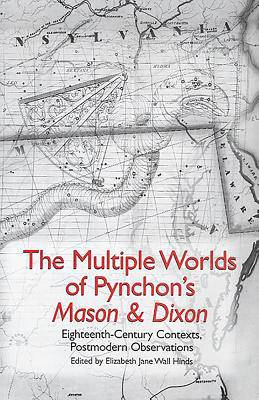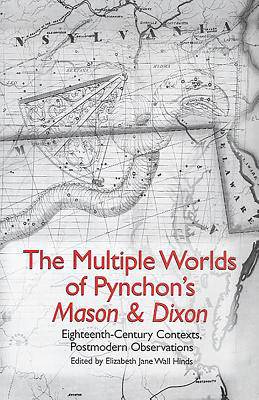
- Retrait gratuit dans votre magasin Club
- 7.000.000 titres dans notre catalogue
- Payer en toute sécurité
- Toujours un magasin près de chez vous
- Retrait gratuit dans votre magasin Club
- 7.000.0000 titres dans notre catalogue
- Payer en toute sécurité
- Toujours un magasin près de chez vous
The Multiple Worlds of Pynchon's Mason & Dixon
Eighteenth-Century Contexts, Postmodern Observations
122,45 €
+ 244 points
Description
Thomas Pynchon's 1997 novel Mason & Dixon marked a deep shift in Pynchon's career and in American letters in general. All of Pynchon's novels had been socially and politically aware, marked by social criticism and a profound questioning of American values. They have carried the labels of satire and black humor, and "Pynchonesque" has come to be associated with erudition, a playful style, anachronisms and puns -- and an interest in scientific theories, popular culture, paranoia, and the "military-industrial complex." In short, Pynchon's novels were the sine qua non of postmodernism; Mason & Dixon went further, using the same style, wit, and erudition to re-create an 18th century when "America" was being formed as both place and idea. Pynchon's focus on the creation of the Mason-Dixon Line and the governmental and scientific entities responsible for it makes a clearer statement than any of his previous novels about the slavery and imperialism at the heart of the Enlightenment, as he levels a dark and hilarious critique at this America. This volume of new essays studies the interface between 18th- and 20th-century culture both in Pynchon's novel and in the historical past. It offers fresh thinking about Pynchon's work, as the contributors take up the linkages between the 18th and 20th centuries in studies that are as concerned with culture as with the literary text itself. Contributors: Mitchum Huehls, Brian Thill, Colin Clarke, Pedro Garcia-Caro, Dennis Lensing, Justin M. Scott Coe, Ian Copestake, Frank Palmeri. Elizabeth Jane Wall Hinds is Professor and Chair of the English Department at SUNY Brockport.
Spécifications
Parties prenantes
- Editeur:
Contenu
- Nombre de pages :
- 222
- Langue:
- Anglais
- Collection :
Caractéristiques
- EAN:
- 9781571133182
- Date de parution :
- 01-11-05
- Format:
- Livre relié
- Format numérique:
- Genaaid
- Dimensions :
- 161 mm x 236 mm
- Poids :
- 489 g

Les avis
Nous publions uniquement les avis qui respectent les conditions requises. Consultez nos conditions pour les avis.





